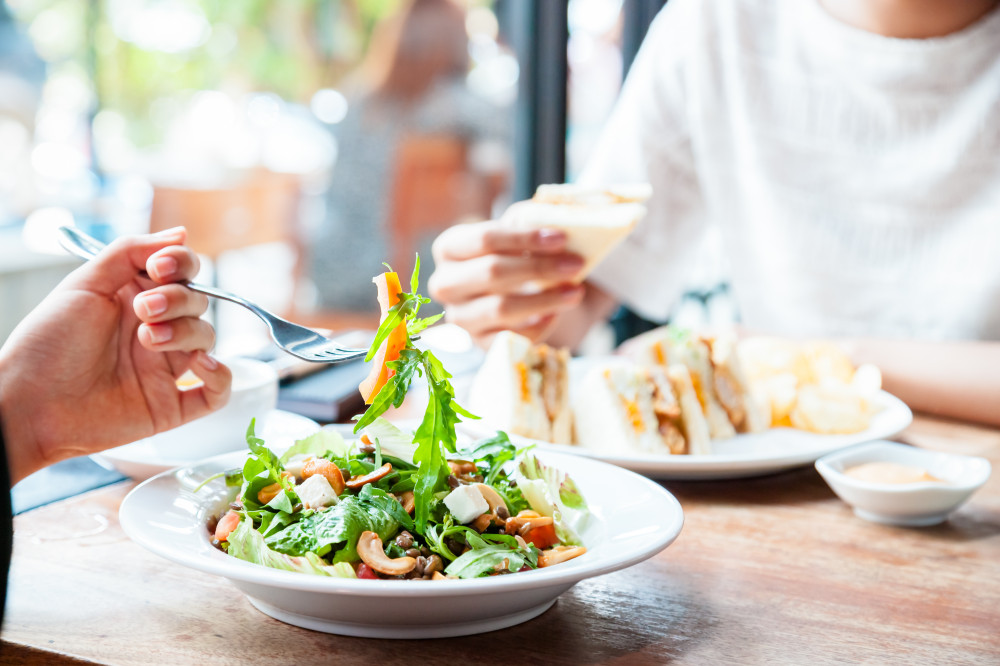-
An urgent, localised response is needed to transform our existing food systems before the damage to nature and our health is irreversible
-
WWF Central and Eastern Europe´s newly released report, “The Plate of Change”, presents a win-win eating pattern that meets national nutritional requirements while reducing the environmental footprint of our food system
-
Food choices are not just a question of personal preferences. They are deeply influenced by what’s available, affordable, and accessible, and how it’s marketed.
WWF launches a new approach to healthy and sustainable diets in Central Europe called “Livewell”. The win-win eating pattern suggested by the environmental organisation meets national nutritional requirements while reducing the ecological footprint of our food system. Originally developed in the United Kingdom, the scientific approach has been adapted to Central European nutritional, geographical, cultural, and market specifics. It provides practical tips on how to put together a sustainable diet, which food groups we should prioritise between now and 2030 to ensure we can meet the targets of the Paris climate agreement.
The approach has been presented as part of the newly released report for Czechia, Slovakia, and Hungary, called “The Plate of Change”, providing a wider context of the food systems in the region and making the case that diets are a powerful lever for change. Our food choices can unlock opportunities to reduce pressure on the environment and the climate. Adopting the Livewell recommendations could deliver a substantial reduction in emissions and reduced biodiversity loss compared to the current average diet, while also supporting a transition to nature-friendly farming practices.
 The science-based report confirms that achieving a healthy, sustainable diet is possible within current social norms and without costing more.
The science-based report confirms that achieving a healthy, sustainable diet is possible within current social norms and without costing more.
The suggested diet is flexible and made up of a wide variety of foods. It is plant-rich and includes a moderate amount of meat, dairy products, eggs, and fish. Livewell emphasises whole foods and recommends minimising consumption of foods high in fat, salt, and sugar and ultra-processed foods.
“Humanity is facing a triple challenge: how to ensure food and nutrition security for all, while keeping global warming to 1.5°C and reversing nature loss. The food we eat and the input-intensive way it is produced are driving nature loss, polluting waterways, depleting soils, and undermining food and nutrition security,” says Irene Lucius, Regional Conservation Director at WWF-CEE. “The health of the planet is intimately connected with our own. Prioritising plant-based meals while moderating our meat consumption is critical both for our well-being and that of our planet”.
The authors of the report emphasise the fact that diets are not just a matter of personal preferences and individual choice.
Food choices are deeply influenced by what is available, affordable, and accessible, as well as how it is marketed. The most effective policy changes are those that target the food environment, ensuring every citizen has access to and can afford healthy, sustainable food rather than relying solely on individual choice. WWF experts remind us of the recommended actions that food-related businesses can take to enable more sustainable choices, such as but not limited to: rebalancing product pricing so that healthier, more sustainable products become the most affordable options for customers; setting ambitious targets to increase sales of plant proteins; establishing a system for measuring sales of animal/plant proteins along with carbon footprint and publicising the plant/ animal proportion of protein sales broken down on an annual basis.
“Healthy, sustainable food should be accessible and affordable for everyone, both now and in the future. Governments and businesses have a vital role to play in enabling and encouraging a shift to healthy, sustainable diets, especially during today’s cost-of-living crisis,” says Lenka Fryčová, Sustainability Expert at WWF-CEE and a leading author of the report. “Meanwhile, let’s not forget that every little change matters. We, as individuals, also have the power and responsibility to contribute to this shift. There is no need for anyone to take drastic steps; what is needed is for large numbers of people to take a series of small steps”.
“The Plate of Change” report has been created as part of the umbrella partnership between WWF-CEE and Tesco Central Europe. WWF-CEE and Tesco CE are working together to support the shift towards more sustainable food production and consumption in Czechia, Hungary, and Slovakia. Further details about the partnership can be found here.
Contact:
Mihaela Popova
Communications Manager
WWF Central and Eastern Europe
mpopova@wwfcee.org


